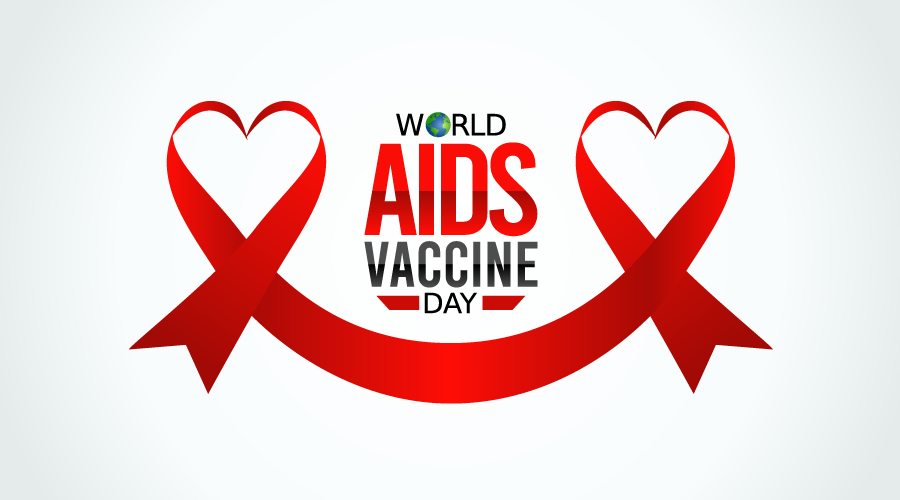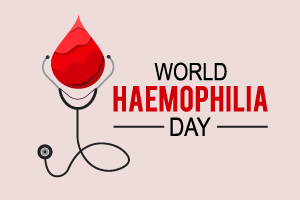

Acquired immunodeficiency syndrome, also known as AIDS, is a severe health condition caused when the human immunodeficiency virus (HIV) attacks a person’s immune system and reduces its ability to protect the person from other diseases. To spread awareness about this and to recognize the efforts of several thousand health professionals and scientists who have worked tirelessly in pursuit of creating a vaccine against this disease, World AIDS Vaccine Day is recognized annually on May 18. This day may also be celebrated as HIV Vaccine Awareness Day which also goes by #HVAD. The main objective of this day is to spread awareness about HIV and to prevent its spread.
A Global Issue
HIV remains a severe global health issue for about 4 decades now since it was first recognized as the cause of AIDS back in 1984 when the initial cases of HIV were discovered in the United States of America.
In 1997, at the Morgan State University, the then-President Bill Clinton in his speech said that the only way to contain the spread of HIV and eventually wipe it out was possible through a vaccine. Following that, in May 1998, World’s first AIDS Vaccine Day was observed.
Based on the stats of 2020, an estimated 37 million people are currently living with HIV and over 36 million people worldwide have been killed by AIDS so far, making it one of the most serious global health concerns in all of history.
IAVI, the International AIDS Vaccine Initiative, is a public-private, global not-for-profit partnership, working towards improving the development of vaccines to prevent AIDS and HIV infections leading to AIDS. The World Health Organisation (WHO) has 11 official global public health campaigns. World AIDS Day is one of them.
How Does It Spread?
The human immunodeficiency virus is a sexually transmitted infection. It is spread by coming in contact with an infected person’s body fluids such as blood, through semen, or vaginal secretions, unprotected sexual intercourse, blood transfusion, or sharing needles, syringes, or other piercing instruments. It may be passed by a mother to her child during breastfeeding, or childbirth. Therefore, it is advised that if a woman who has HIV is to give birth, she should do so via C-section.
However, HIV cannot be spread through social contact, shaking hands, hugging, or kissing. It cannot be spread through saliva, air, food, water, toilet seats, or insect bites.
What is World AIDS Vaccine Day?
The recent pandemic has helped immensely in the development of this experimental vaccine for HIV. The COVID pandemic has pushed pharmaceutical companies and researchers to take a risk and run tests of mRNA technology on people. Within a year, they proved that the technology works well.
So, in January 2022, the National Institute of Health and Moderna, along with the International AIDS Vaccine Initiative, launched their first clinical trial of an mRNA vaccine for HIV. After nearly 40 years, medical researchers and companies are hopeful about having an officially approved vaccine in the coming future.
Meanwhile, there exist certain medications for HIV which help to reduce the amount of viral load while simultaneously reducing the risk of spreading HIV to others. HIV attacks a person’s immune system by destroying the white blood cells responsible for fighting infection. These white blood cells are known as CD4 cells, the loss of which makes it hard for a person’s body to fight off infections.
Medicines for HIV
These HIV/AIDS medicines work by changing enzymes and blocking the virus from multiplying. This restraint reduces the number of copies of viruses in the body. Such medicines are as follows:
- Nucleoside reverse transcriptase inhibitors (NRTIs) block reverse transcriptase, an enzyme.
- Non-nucleoside reverse transcriptase inhibitors (NNRTIs) change and bind reverse transcriptase.
- Integrase inhibitors block integrase, another enzyme.
- Protease inhibitors (PIs) block an enzyme known as protease.
It’s very important to follow a regular schedule with these medicines and to take them daily as well as on time for the treatment to work or else the virus may become resilient to the medicines. These medicines are also known to cause certain side effects, most of which are manageable but some can be serious.
Steps to Prevent HIV
There are a few steps that can be taken to prevent an HIV infection such as:
- Make use of condoms while participating in any kind of sexual activity, including casual sex, oral sex, etc.
- Try to avoid casual sex.
- Get regularly checked for sexually transmitted diseases that might increase the risk of developing HIV.
- Do not share piercing tools like jewellery, needles, and syringes with anyone. Also, use sterilised equipment.
- If getting a blood transfusion, ask for HIV-screened blood.
Precautions to Prevent HIV
Other precautions can also be taken to prevent HIV such as:
- Taking measures to keep one’s immune system strong by adopting healthy eating habits, not smoking, and avoiding alcohol.
- Reducing stress to deal effectively with illnesses by keeping a clear mind and thinking straight.
- Having good hygiene and practising safe-sex methods .
Treatment of HIV
As of December 2021, there’s still no progress on the availability of a vaccine to cure or prevent this infection.
The medication suggested for HIV has helped increase the lifespans of people suffering from the disease and have prevented transmission. Moreover, the awareness programs and activities conducted by organisations and institutions around the globe have helped spread information and awareness regarding the disease. However, the only effective way to put an end to this epidemic is with a fully functional vaccine.
Without treatment, the virus can destroy a person’s immune system, leaving them defenceless for their bodies to protect against other diseases and may advance from HIV to AIDS. AIDS is the final stage of HIV infection.
Antiretroviral therapy (ART) is the most effective known treatment for HIV. ART is a combination of several medicines that help to keep in control the amount of virus in the human body that may be spread through HIV. These medicines help to slow the rate at which the virus grows to help a person buy time to fight the virus and stay healthy. This treatment is recommended to all who suffer from HIV. It’s important to know that these medicines do not cure HIV, they just make it slightly convenient to deal with. This procedure also helps to reduce the risk of spreading the virus.
Conclusion
HIV/AIDS so far is not a curable disease as there’s no vaccine for it but certain measures can be taken to prevent the situation from escalating and leading HIV to turn to AIDS, as notable people who suffer from HIV, suffer from AIDS. Medications may help to prevent virus multiplication, hence preventing the disease to reach its full extent and help the person stay healthy meanwhile. This World AIDS Vaccine Day, make it a point to get regular health check-ups and always remember- “prevention is better than cure.”




